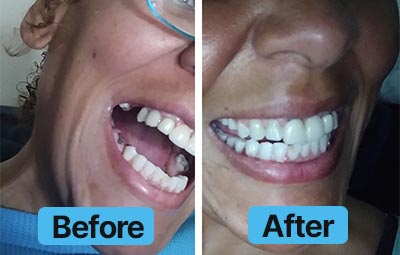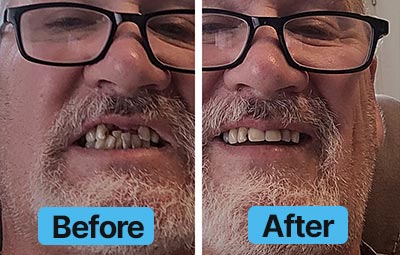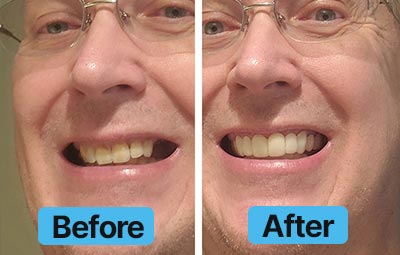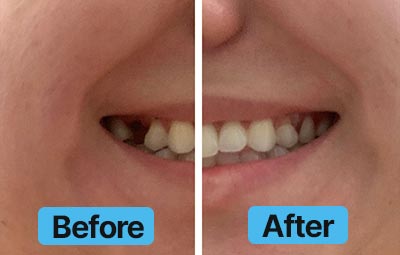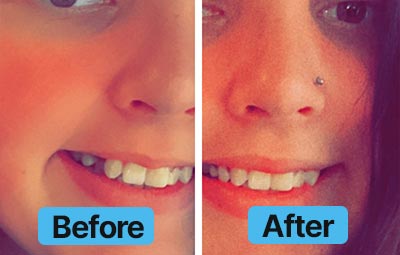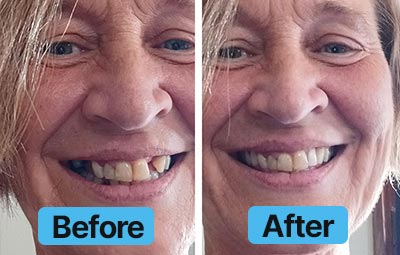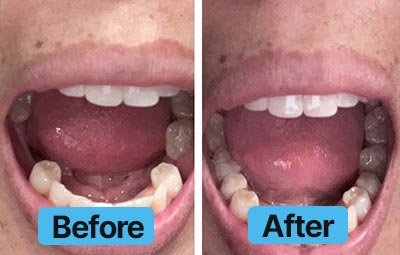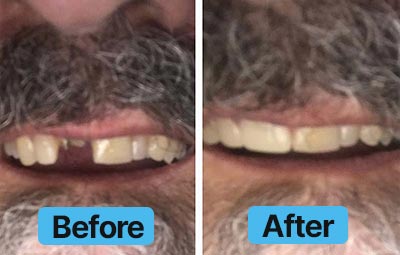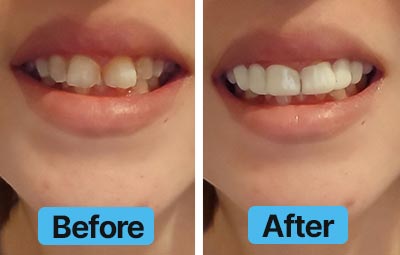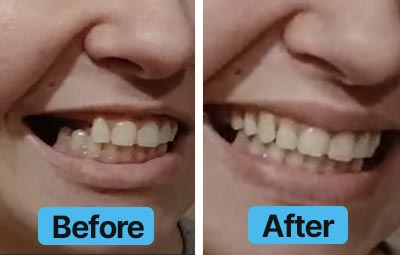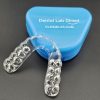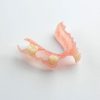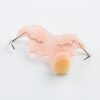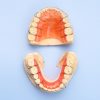Missing teeth change more than your smile; they change how you eat, speak, and feel around others.
Most people choosing between dentures vs implants worry about cost, comfort, and how long each will last. This side-by-side comparison strips away the guesswork, helping you make a confident, informed decision that fits your daily life and budget.
Upfront Prices and Long-Term Value
Cost of Dentures
Dentures (which can be partial or full dentures) generally cost less up front than implants. So, if budget is your biggest concern, dentures are the more affordable option initially.
Typical prices in the US for a complete set of conventional full dentures can cost up to $5,000 when done by a dentist.
However, Dental Lab Direct’s full dentures only cost $199 per plate. And for those only missing a few teeth, partial dentures start at $299.
Cost of Implants
Implants are more expensive upfront, especially for multiple teeth. A dental implant replaces a tooth root with a metal post topped by a crown and requires oral surgery.
As of 2024, a single tooth implant in the US will run you between $3,000 and $7,000. This includes the implant post, abutment, and crown.
Now multiply that by 32 teeth, and you’re looking at an incredibly expensive way to replace your teeth.
Long-Term Cost of Dentures vs Implants
Every 5-10 years, your dentures will need to be replaced or relined as your gums and jaw change, which adds to their lifetime cost.
Implants cost more upfront, but the titanium post can last a lifetime, assuming that there are no complications, which occur in around 42% of patients. The crown may also need to be replaced every 10-15 years, but overall, implants offer longer-lasting value with fewer ongoing expenses.
Daily Life with Dentures vs Implants
Dentures Comfort Level
Modern dentures can restore your natural appearance and basic function, but they can slip around and possibly feel a bit bulky while wearing them.
Full dentures sit on the gums and may move, especially while eating or speaking, while you’re first getting used to them. Adhesives can help reduce this movement, but your biting force will be more limited than that of natural teeth. Dentures can also dull your taste and temperature perception, which is a problem for some.
Partial dentures are great for those who still have most of their natural teeth. The benefit to them over full dentures is that they feel much more secure since they clip onto existing teeth.
Overall, dentures can be quite comfortable for many daily activities once you adapt, but they do not perfectly mimic the feel of natural teeth.
Implants Comfort Level
Implants are closest to natural teeth in feel and performance. Implants are often touted as the gold standard for comfort because they are anchored in the jawbone like real teeth. This gives them superior stability since implant-supported teeth won’t slip or click when you speak or laugh.
For a single missing tooth or a few, an implant with a crown feels nearly indistinguishable from a real tooth when biting. If you have implant-supported dentures (such as an overdenture that snaps onto 2–4 implants), they are much more secure than regular dentures and typically don’t require any adhesive.
Implants also allow you to chew with more force, which is great if your diet includes crispy and chewy foods that might otherwise be off-limits with dentures.
In terms of speech, implants (or implant-fixed prosthetics) don’t cover the palate, so they generally do not affect taste or speech in the way a full upper denture might.
Invasiveness of Dentures vs Implants
For some, the invasiveness of dentures vs implants can completely change which direction they choose.
Simply put, getting dentures is non-invasive (aside from any necessary tooth extractions). Once measurements and fittings are done, you receive your appliance.
You can even get Easy Dentures delivered to your home and easily fit them yourself in less than 5 minutes with nothing more than hot water.
Implants are a completely different story.
You’ll need to have oral surgery to place the implant posts in the jaw if you go in that direction. The entire procedure is done under anesthesia, and while not usually very painful, it does involve healing time and can be several months for the implant to fuse to bone before the final tooth/crown is attached.
And if the implants fail (which happens in less than 2% of all patients) or you experience complications (which happens in just under half of all patients), you’ll need to have more treatment and possibly more invasive procedures.
Dentures vs Implants Durability
Dentures usually last 5 to 10 years before needing replacement as the mouth changes and materials wear down.
Dental implants are meant to be permanent; the titanium post can last a lifetime with proper care. Crowns or implant-supported dentures may need repairs every 10-15 years, but the implant itself stays in place.
When comparing dentures vs implants, implants often provide greater durability and fewer replacements over time.
Making the Right Choice for Your Smile
Choosing between dentures vs implants depends on your budget and lifestyle, but both options can restore your smile to the way you’ve always wanted.
Dentures are a quicker, more affordable fix that are best for full teeth replacement or partial teeth replacement, while implants provide a long-term, natural feel.
Still unsure what’s right for you? Dental Lab Direct makes it easy to explore your options from home with expert support and affordable pricing.
Don’t wait! Find the right fit for your smile with Dental Lab Direct today.
 60 DAY warranty on all custom-made products | 1,000+ 5 Star ★★★★★ Reviews
60 DAY warranty on all custom-made products | 1,000+ 5 Star ★★★★★ Reviews

